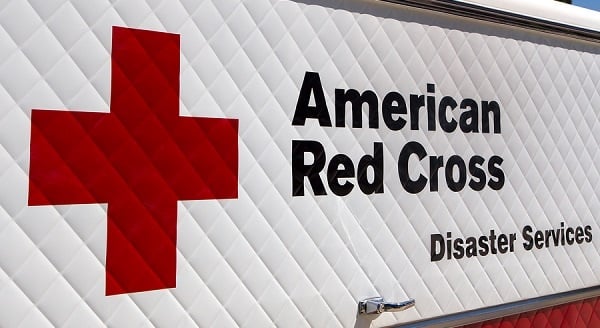Natural disasters can happen; Hurricane Harvey was the category 4 storm with sustained 140+ mph winds that produced a devastating 52"+ inches of rain on Southeastern Texas. The flooding is unprecedented in Texas history. Similar storms, such as Katrina or superstorm Sandy, have wrecked billion of dollars of havoc on New Orleans and New Jersey respectively in the past couple of years. While we cannot avoid these natural disasters, we can prepare for the worst so we are always ready in case devastation were to strike.
What Can I Do To Protect Seniors I Love?
Some populations need more help during natural disasters than others. For example, young children, or the elderly, will need extra assistance to be sure they are prepared and unharmed in the event of a natural disaster.
The following are some ways you can ensure your senior loved ones are prepared in case disaster were to strike:
Evacuation Plans
- Understand Where You Live: Various geographic locations are prone to certain disasters more than others. Understand where you live and the most likely disasters you could potentially face. For example, if you live in a low-lying area flooding is a more likely scenario, but if you live in the Midwest tornadoes are likely of concern. If you live near fault lines, you may concern yourself more with earthquakes.
- Have a Way Out: Ensure your senior knows what to do if there is a mandatory evacuation. Ensure they can get to safety. This includes wheelchairs, walkers, canes, or other devices needed to help the senior navigate — especially if the terrain is rough after a disaster.
- Ensure Mobility Needs Are Met: If a senior you love needs mobility assistance ensure that the equipment in good working order to help them get around when they need to.
- Review Plans Regularly: Be sure to review your plans for disasters every few months and update them as needed. Check with authorities to make sure nothing has changed about evacuation policies. The more prepared you are the easier it will be to act in the event of a disaster.
Stock Supplies
- Have a Radio/Communication Tool: Ensure your loved one has a way of tuning into the local authorities if power were to go out and cable is not working. A battery-powered radio is a great solution for this so that your loved one can tune into the local news station to hear the latest updates. Include a dozen extra batteries or so to ensure that the radio can be powered for several days in case of a severe event.
- Store Food: Have at least a 3-5 day supply of nonperishable food on hand in case you are not able to get out of the house after a disaster! Replace these supplies every so often before things expire, and make sure your supply stays thoroughly stocked at all times.
- Fresh Drinking Water: Ensure you have at least 1 gallon of drinkable bottled water on hand for each day the disaster could last. Portable water containers are a great way to easily store water. Ensure that your loved one is drinking enough to stay adequately hydrated and is not "afraid" of running out of their water supply.
- Store Extra Medication: Be sure to have at least one week's supply of vital medications on hand that a senior may not be able to live without. These medications include treatments for diabetes like insulin or other prescribed medications. It may be several days before you can get medicine delivered or get out to the pharmacy to pick up more! It's best to be prepared.
- Pets/Service Animals: If your senior needs service animals or has any pets also be sure to have an adequate supply of food and supplies on hand to care for them for at least a week in the case of a natural disaster. This helps the senior avoid added stress of their pet not being cared for during a disaster.
Red Cross or Other Disaster Relief Help
For more information on how to proceed if a natural disaster strikes you, reach out to a local organizational branch of a disaster relief like the Red Cross for more information on how to prepare for disasters in your area and where to turn to for help if you need it. Review their Red Cross's 3-step plan to safety assurance to ensure you and your loved ones are prepared for any disaster that may affect your family.

